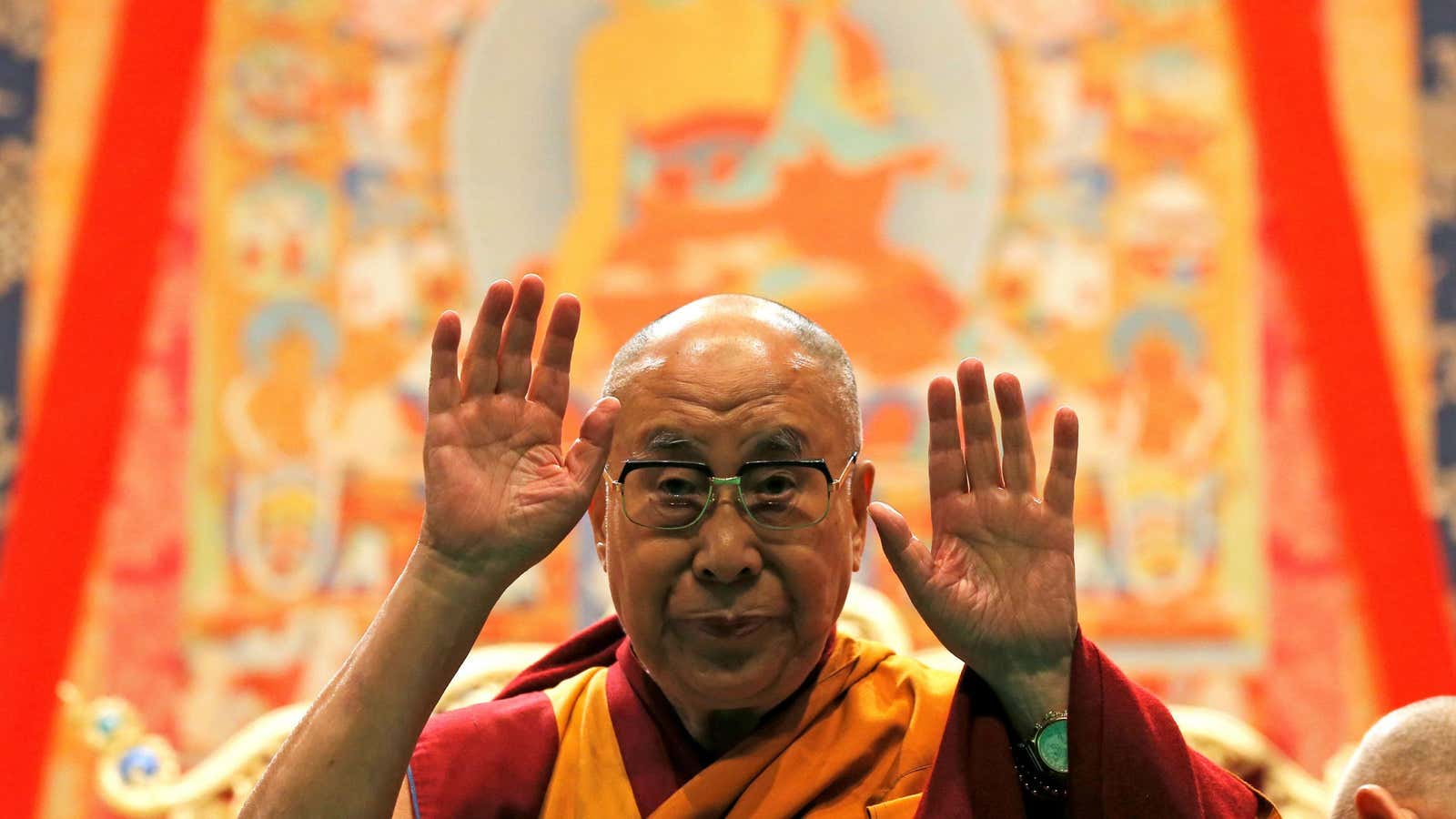Botswana’s standing with China may be on the rocks. The Dalai Lama, who Beijing views as a separatist for his advocacy of Tibetan independence from China, is expected to visit Gaborone next month for a human rights conference. Botswana officials have been quick to say the government is not hosting the spiritual leader. The visit will be ”purely private,” the country’s permanent secretary in the ministry of foreign affairs, Gaeimelwe Goitsemang, said last month.
The Dalai Lama will give a speech at the event hosted by a Virginia-based NGO, the Life and Mind Institute. He is also expected to meet Botswana’s president Ian Khama.
As the visit draws closer, Beijing’s warnings are growing more stern. “Issues relating to Tibet concern China’s sovereignty and territory integrity,” foreign ministry spokesman Lu Kang said at a news briefing this week. “We demand the relevant country earnestly respect China’s core interests and make the correct political decision on this matter.”
China’s sensitivity to perceived threats to its territorial claims exposes some of the limits of Beijing’s so-called policy of noninterference in the domestic affairs of other countries. South Africa, under pressure from China, has denied entry to the Dalai Lama three times. “China will not interfere in other countries’ internal affairs, but will certainly not tolerate another country doing anything that harms China’s core interests,” Lu said, regarding the Dalai Lama’s visit to Botswana.
At risk for Botswana is a vital block of Chinese trade and investment. China is the second largest buyer of Botswana’s diamonds, which account for as much as 27% of the country’s GDP. Chinese companies have been contracted to do major infrastructure projects and roads. And Chinese migrants bring in cheap goods, sold by both Chinese and local traders.
Yet, ties between China and Botswana have already been faltering for some time. Officials have complained about the quality of Chinese-built infrastructure and abandoned investment projects. Local traders complain about Chinese competition, and more Chinese are having trouble getting visas to enter the country.
Last year, Botswana made the rare move of condemning Chinese military maneuvers during heightened tensions over territorial claims in the South China Sea. “No country, no matter how big its economy or military, should impose its power over others to make claims, which may escalate tensions that could result in conflicts,” the country’s foreign ministry said.
